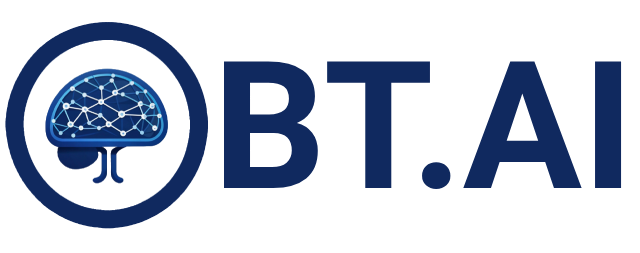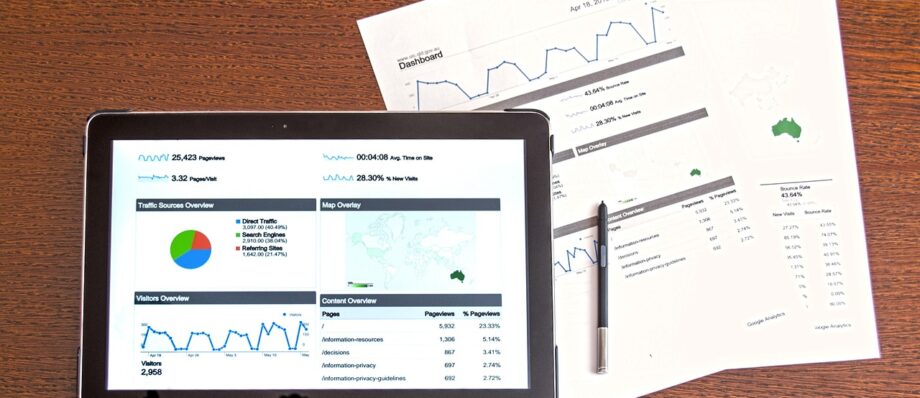AI-Powered Business Intelligence: Top Tools and Insights for Enhanced Decision Making
Business intelligence (BI) is how businesses use data to make better decisions. It can help them do better, work smarter, find new chances, and stay ahead of others. But BI can be complex and slow, especially with big and complicated data. Old BI tools may need a lot of manual work, coding, and asking questions, which can make analysis slower and narrower. Also, old BI tools may not work well with the many significant data sources we have today, like social media, web analytics, IoT devices, etc. AI can make BI better. AI is the part of computer science that makes machines, and systems do things that need human intelligence, like learning, reasoning, and solving problems. AI can make BI faster and easier by doing data work, finding insights, and giving suggestions. AI can also let you talk to data in natural language, see data in pictures, and predict what will happen with data. In this article, we will look at some of the best AI tools for BI that can help you analyze data better. We will also discuss the good and bad things about using AI for BI and give tips on picking the right tool for your business.
What are the benefits of using AI for business intelligence?
AI can help businesses make better use of their data in many ways, such as:
- Data analysis that is quick and easy: AI can do the work of preparing, cleaning, and combining data, which can save time and resources. AI can also look at data as soon as it is available and give immediate insights and feedback.
- Insights that are deeper and wider: AI can deal with large and complex data sets from different sources and formats. AI can also use advanced analytics methods, such as machine learning, natural language processing, and computer vision, to find hidden patterns and trends in data.
- Decision-making that is improved: AI can give valuable suggestions based on data analysis. Using modeling and forecasting, AI can also help businesses predict future outcomes and scenarios.
- Data access that is democratized: AI can let users interact with data using natural language, such as asking questions and getting answers in simple language. AI can also make data easier to access and understand for non-technical users by creating interactive dashboards and visualizations.
What are the challenges of using AI for business intelligence?
AI can also pose some challenges for business intelligence, such as:
- Data quality and security: AI relies on high-quality and reliable data to perform well. However, data can be incomplete, inaccurate, or outdated, affecting the accuracy and validity of AI results. Moreover, data security and privacy are crucial issues that must be addressed when using AI for BI. Businesses must ensure their data is protected from unauthorized access or misuse.
- Ethics and bias: AI can reflect its creators’ and users’ values and assumptions. However, these values and beliefs may not be fair or ethical for all stakeholders. For example, AI may produce biased or discriminatory results based on gender, race, or age. Businesses must ensure their AI tools are transparent, accountable, and aligned with their ethical standards.
- Skills and resources: AI requires specialized skills and resources to implement and maintain. Businesses need a team of experts who can design, develop, test, and monitor their AI tools. Businesses must also have adequate infrastructure and hardware to support their AI tools.
How to choose the right AI tool for business intelligence?
Many AI tools claim to offer various features and benefits for business intelligence. However, not all tools are equal or suitable for every business need. Therefore, businesses need to consider some factors before choosing an AI tool for BI, such as:
- Business objectives: Businesses need to define their goals and expectations using an AI tool for BI. For example, do they want to improve their operational efficiency? Do they want to increase their customer satisfaction? Do they want to explore new markets or opportunities? Businesses can narrow their options based on their objectives and select an AI tool matching their requirements.
- Data sources: Businesses need to identify the types and sources of data they want to analyze using an AI tool for BI. For example, do they have structured or unstructured data? Do they have internal or external data? Do they have static or dynamic data? Based on their data sources, businesses can choose an AI tool that can handle their data complexity and diversity.
- User profiles: Businesses need to consider the profiles and preferences of their users who will use or interact with the AI tool for BI. For example,
Do they have technical or non-technical users? Do they have frequent or occasional users? Do they have individual or collaborative users? Based on their user profiles, businesses can choose an AI tool that can provide a user-friendly and personalized experience.
What are some of the top AI tools for business intelligence?
Here are some of the top AI tools for business intelligence that can help you leverage the power of AI for your data analysis:
Salesforce Einstein is a powerful AI platform that offers advanced analytics, predictive modeling, and machine learning capabilities for business intelligence. It is integrated with Salesforce’s cloud-based CRM and other applications, which makes it easy to access and analyze data from various sources. Salesforce Einstein can help businesses:
- Discover insights: Salesforce Einstein can automatically discover relevant insights from data, such as customer behavior, sales performance, marketing effectiveness, and more. It can also provide explanations and recommendations based on the insights.
- Predict outcomes: Salesforce Einstein can use machine learning to create and deploy predictive models to forecast future results and scenarios, such as customer churn, revenue growth, product demand, etc. It can also provide guidance on how to improve the predictions.
- Automate actions: Salesforce Einstein can use natural language processing and computer vision to automate tasks and workflows based on data analysis, such as creating leads, sending emails, generating reports, and more. It can also provide feedback and alerts on the actions.
Microsoft Power BI is a widely used AI tool that enables users to visualize and analyze data from various sources, create interactive reports, and leverage AI-driven analytics. It is available as a cloud-based service or a desktop application, which makes it flexible and scalable. Microsoft Power BI can help businesses:
- Connect data: Microsoft Power BI can connect to hundreds of data sources, such as databases, files, web services, cloud platforms, and more. It can also transform and model data using built-in or custom functions.
- Visualize data: Microsoft Power BI can create stunning and interactive dashboards and reports that display data in various formats, such as charts, maps, tables, gauges, etc. It can also enable natural language queries and responses for data exploration.
- Analyze data: Microsoft Power BI can use AI to enhance data analysis, such as finding outliers, identifying trends, detecting anomalies, and more. It can also use machine learning to create and apply predictive models for data forecasting.
Tableau is a popular business intelligence tool incorporating AI and machine learning capabilities to help users analyze and visualize data, explore insights, and make data-driven decisions. It is available as a desktop, server, or online solution, which makes it adaptable and accessible. Tableau can help businesses:
- Prepare data: Tableau can automate data preparation tasks, such as cleaning, formatting, joining, and aggregating data. It can also use natural language processing to understand data context and semantics.
- Explore data: Tableau can use AI to generate smart visualizations that reveal hidden patterns and insights from data. It can also use natural language generation to provide explanations and narratives for the visualizations.
- Optimize data: Tableau can use machine learning to provide recommendations and suggestions for data analysis, such as choosing the best chart type, applying filters, adding calculations, and more. It can also use machine learning to optimize performance and scalability.
IBM Watson Analytics is an AI-powered business intelligence platform that provides advanced analytics, natural language processing, and cognitive computing capabilities to uncover insights from data. It is a cloud-based service that can be accessed from any device. IBM Watson Analytics can help businesses:
- Ask questions: IBM Watson Analytics can use natural language processing to understand and answer user questions about their data. It can also provide suggestions and guidance on what questions to ask and how to refine them.
- Discover insights: IBM Watson Analytics can use machine learning and cognitive computing to automatically discover and visualize insights from data, such as patterns, trends, correlations, and outliers. It can also provide explanations and recommendations based on the insights.
- Predict outcomes: IBM Watson Analytics can use machine learning and cognitive computing to create and apply predictive models to forecast future results and scenarios, such as customer behavior, sales performance, risk assessment, and more. It can also provide feedback and confidence levels for the predictions.
Google Cloud AutoML allows businesses to build custom machine-learning models without requiring extensive coding knowledge. It simplifies the process of creating AI models for data analysis and predictions. Google Cloud AutoML can help businesses:
- Create models: Google Cloud AutoML can automatically create and train machine learning models based on users’ specific data types and objectives. It can handle various data types, such as images, text, video, and tabular data.
- Evaluate models: Google Cloud AutoML can automatically evaluate and compare the performance and accuracy of different machine learning models. It can also provide metrics and reports on the model’s quality and reliability.
- Deploy models: Google Cloud AutoML can quickly deploy and integrate the machine learning models with other Google Cloud services or applications. It can also scale and manage the models according to the user’s needs.
ThoughtSpot is an AI-driven analytics platform that enables users to search and analyze data in a user-friendly manner. Its AI capabilities provide intuitive insights and help in making data-driven decisions. ThoughtSpot can help businesses:
- Search data: ThoughtSpot can use natural language processing to understand and execute queries that users type or speak in plain language. It can also provide suggestions and autocomplete features to help users formulate their queries.
- Analyze data: ThoughtSpot can use AI to generate relevant and interactive visualizations that display data in various formats, such as charts, graphs, tables, maps, and more. It can also use AI to provide insights and recommendations based on data analysis.
- Share data: ThoughtSpot can enable users to share their data analysis results with others through dashboards, reports, or stories. It can also allow user collaboration and feedback through comments, annotations, or ratings.
Yellowfin is a business intelligence and analytics platform that leverages AI and machine learning to deliver automated insights, data discovery, and natural language queries. It is available as a cloud-based or on-premise solution that can integrate with various data sources and applications. Yellowfin can help businesses:
- Automate insights: Yellowfin can use AI to automatically generate insights from data, such as key drivers, anomalies, changes, trends, and more. It can also use natural language generation to provide explanations and narratives for insights.
- Discover data: Yellowfin can use machine learning to provide recommendations and suggestions for data exploration, such as what data to use, what questions to ask, what visualizations to create, and more. It can also use machine learning to optimize data quality and relevance.
- Query data: Yellowfin can use natural language processing to enable users to ask questions about their data in plain language. It can also generate natural language to provide answers in simple language or visualizations.
Qlik Sense is a popular AI-powered business intelligence tool that offers interactive dashboards, data visualization, and augmented analytics capabilities for data exploration and decision-making. It is available as a cloud-based or on-premise solution that can connect to various data sources and applications. Qlik Sense can help businesses:
- Explore data: Qlik Sense can use AI to provide smart visualizations that reveal hidden patterns and insights from data. It can also use AI to provide contextual suggestions and guidance for data exploration.
- Interact with data: Qlik Sense can use natural language processing to enable users to interact with their data using voice or text commands. It can also generate natural language to respond in plain language or visualizations.
- Learn from data: Qlik Sense can use machine learning to learn from user behavior and feedback and provide personalized recommendations and insights based on user preferences and interests.
Sisense is a comprehensive business intelligence platform incorporating AI and machine learning to provide advanced analytics, data preparation, and predictive modeling for actionable insights. It is available as a cloud-based or on-premise solution that can integrate with various data sources and applications. Sisense can help businesses:
- Prepare data: Sisense can automate data preparation tasks, such as connecting, blending, and transforming data from multiple sources. It can also use machine learning to ensure data quality and consistency.
- Analyze data: Sisense can use AI to provide augmented analytics to enhance data analysis, such as generating insights, providing explanations, and offering recommendations. It can also use machine learning to create and apply predictive models for data forecasting and optimization.
- Present data: Sisense can use AI to create interactive and engaging dashboards and reports that display data in various formats, such as charts, graphs, tables, maps, and more. It can also use natural language processing and generation to enable users to ask and answer questions about their data in plain language.
RapidMiner is an AI-driven data science platform that enables businesses to extract insights from data, build predictive models, and automate machine learning workflows for business intelligence purposes. It is available as a cloud-based or on-premise solution that can connect to various data sources and applications. RapidMiner can help businesses:
- Extract insights: RapidMiner can use AI to automatically extract insights from data, such as patterns, trends, correlations, and outliers. It can also use natural language generation to provide explanations and narratives for insights.
- Build models: RapidMiner can use AI to automatically build and train machine learning models based on users’ specific data types and objectives. It can handle various data types, such as images, text, video, and tabular data.
- Automate workflows: RapidMiner can use AI to automate machine learning workflows, such as data preparation, model selection, model validation, model deployment, and model monitoring. It can also use AI to provide feedback and suggestions for workflow improvement.
Conclusion
AI tools for business intelligence can help businesses leverage the power of AI for their data analysis and decision-making. AI tools for BI can offer many benefits, such as faster and more accessible data analysis, more profound and broader insights, improved decision-making, and democratized data access. However, AI tools for BI can also pose some challenges, such as data quality and security, ethics and bias, skills and resources. Therefore, businesses need to consider some factors before choosing an AI tool for BI, such as business objectives, data sources, and user profiles. Some of the top AI tools for BI discussed in this article are Salesforce Einstein, Microsoft Power BI, Tableau, IBM Watson Analytics, Google Cloud AutoML, ThoughtSpot, Yellowfin, Qlik Sense, Sisense, and RapidMiner. These tools can help businesses take their BI to the next level by using AI capabilities such as machine learning, natural language processing, computer vision, cognitive computing, and more.
We hope you enjoyed reading this article on AI tools for business intelligence. Please comment below if you have any questions or feedback about this topic or any tools mentioned in this article. We would love to hear from you!



